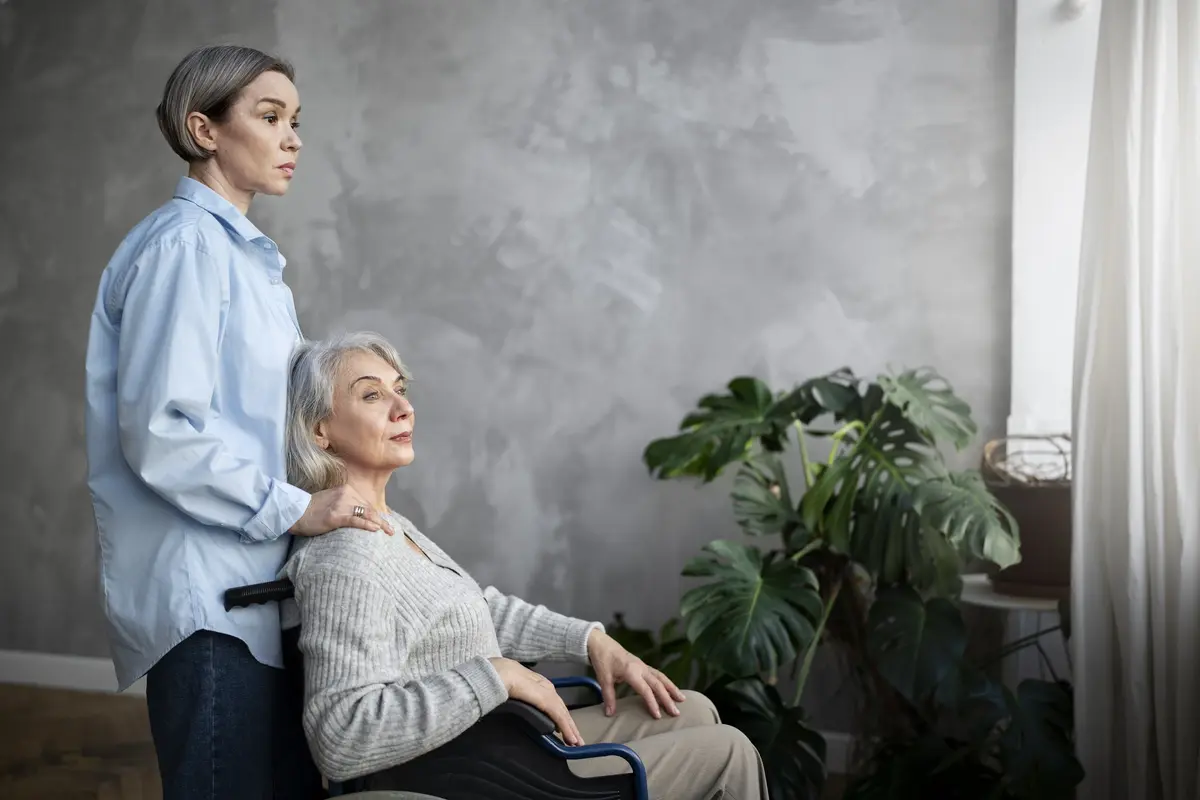
Table of Content
Why won’t Mom take her medication? Why does Dad suddenly refuse to eat—or even get dressed? If you’ve found yourself asking these kinds of questions, you’re not alone. I’m Kate Race with Assisting Hands, and whether you’re new to our Real Talk series or have been with me for a while, I’m so glad you’re here.
These conversations are close to my heart because they speak to one of the toughest parts of dementia care: resistance and refusals. These moments can leave caregivers feeling defeated—when nothing you say or do seems to work, and all you’re trying to do is help someone you love. After over two decades of working alongside families just like yours, I’ve learned that getting through these challenges isn’t about logic or control. It’s about compassion, connection, and patience—sometimes the kind that means taking a breath, stepping back, and trying again later.

Why People with Dementia Say No—and What It Really Means
Resistance isn’t stubbornness. It’s communication. When someone with dementia refuses care, there’s usually something deeper going on. Sometimes it’s shame—imagine needing help doing something you’ve done on your own for 70 years. Other times it’s fear or confusion. They may not recognize you or the task. They may truly believe they already took a shower or that they’re late for a job they retired from two decades ago. Neurologically, the brain is changing—shrinking, disconnecting—and that leads to misinterpretations, sensory overwhelm, or paranoia. If we rush in with our to-do lists and urgency, they’ll push back. If we’re anxious or frustrated, they’ll often mirror that. I always tell caregivers: compassion equals compliance. And if you’ve lost your compassion in the moment—and believe me, we all do—that’s the time to pause and reset.
Core Principles That Shift Everything
Here’s something I want you to hold onto: meet them where they are. Don’t argue. Don’t try to pull them into your reality. Step into theirs. Validation over confrontation, always. Go slow. And I mean really slow. Pause between steps. Observe their body language. Prioritize emotional safety over finishing a task. Think about the relationship, not just the routine. If they feel safe with you, they’ll trust you—and that trust is everything. We talk about giving people with dementia dignity, and this is how we do it: through kindness, consistency, and flexibility.
Approaches That Actually Work
When you approach someone with dementia, do it from the front. Use their name, smile, and keep your voice warm and reassuring. Use short, clear, and kind phrases. Instead of “Time to get dressed,” say “Let’s get cozy.” Instead of “You need to eat,” try “Want to try this with me?” Give simple choices like, “Would you like tea or juice?” Ask for their help—“Can you help me fold this?” People still want to feel useful. If they’re fixated on something—a missing child, a meeting, a past job—don’t correct them. Step into the story. Offer comfort and help within that reality. Sometimes we can redirect with music, pets, snacks, or a favorite object. Other times, it’s about timing. If they’re best in the morning, that’s your window. If they’re always agitated at 4 p.m., maybe that’s when you keep it simple and soothing.
Refusals Around the Big Tasks
Bathing is a common battleground. If the water’s too loud, the room too cold, or the lighting too bright, it can be terrifying. Try towel bathing or sponge baths with warm cloths. Frame it as a comfort—“Let me help you feel nice and fresh”—not a hygiene task. When it comes to eating, think about texture, smell, color. Small, appealing portions with no pressure go further than a full plate and firm reminders. Medications? Try building them into routines, snacks, or familiar rituals.
Let’s Talk About You, Too
This work is deeply emotional. And exhausting. If you’re tired, overwhelmed, or frustrated—please know that’s normal. You’re human. Step away when you need to. Ask for help. Laugh when you can. Cry if you need to. This isn’t about doing everything right. It’s about being present, doing your best, and forgiving yourself when it’s messy. Because it will be. And that’s okay.
Sometimes the Best Response Is “Not Now”
There are moments when nothing will work. When every attempt ends in resistance. That’s when you step back. Revisit it later. Preserve trust. Preserve dignity. The task can wait, but your relationship can’t be easily repaired if it’s fractured by force or frustration. “Not now” can be the most loving phrase you use all day.
From My Heart to Yours
Every act of care you offer—every smile, every moment of patience—is a thread in the fabric of dignity. There is no perfect method, no one-size-fits-all approach. Just love, compassion, and a willingness to try again. If you’re in the trenches of caregiving, know that you are not alone. You’re part of a community of people doing sacred work. And I’m honored to walk alongside you.








